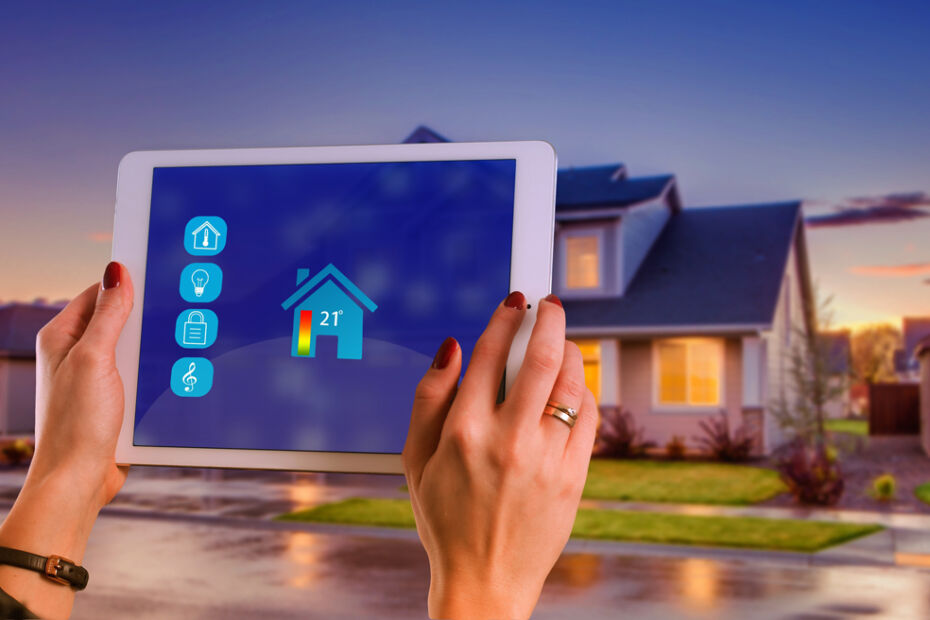Will Matter be all that matters?
- November 4, 2022
- Steve Rogerson
Matter has arrived and is looking good. Steve Rogerson finds out how good.

If there has been one constant during my many years reporting on the technology industry, it is that somewhere there will always be a standards war. And attempts to broker a peace usually if not always result in winners and losers.
Nevertheless, I live in hope that one day all of a particular industry can work together to the benefit of all. Is it possible that Matter heralds that day? On the face of it, things look good.
For those living under a rock, Matter is a brave attempt by the IoT industry to unify the smart-home market under one standard. And it is being done in such a way that the existing standards do not get thrown away but rather Matter sits on top and allows interoperability between them.
OK, not quite that easy. To make a product Matter compatible does involve a lot of work, but the encouraging thing about it is that the big players such as Amazon, Apple, Google and Samsung are all on board, as are many of the silicon vendors.
Matter had its formal launch last month and market watchers already believe it could bring about massive growth in the smart-home sector. Guidehouse Insights, for example, predicts the global smart home market to grow from $29.7bn in 2022 to $109.6bn in 2031, at a compound annual growth rate (CAGR) of 15.6%.
The past couple of weeks have seen a rush of announcements of Matter compatible products and the Connectivity Standards Alliance, formerly the Zigbee Alliance and the creator of the Matter standard, held an event in Amsterdam showcasing Matter products. Since the release, 190 products have received Matter certification or are in queue for testing and certification. There have already been 4400 downloads of the Matter specification since its release and 2500 downloads of the Matter software development kit from GitHub.
Yesterday (November 3) was World Smart Home Day – who comes up with these things? – and I marked it by talking with Dunstan Power, director at technology consultancy ByteSnap Design. He was optimistic.

“Apple is in the same place as Google and Amazon,” he said. “If Matter does that, everyone else will jump on board. I can’t think of a main player that isn’t on board. They say they are supporting it so others have to do it.”
However, he did offer a word of caution. “The large companies often join these things and put in some effort to see what happens,” he said. “They are all involved but I don’t know to what extent.”
Electronica, the massive electronics industry trade show, will take place in Munich later this month after a long gap due to Covid, and Power predicts it will see a lot of Matter announcements. But it could all come unstuck if one of those big players changes its mind and decides to go it alone.
Going down the mountain, smaller companies are also showing a lot of interest, but for them the investment may be a little too much initially. There is help.
“Matter is very new,” Power said. “There are releases going into GitHub all the time. There are reference designs that will make it a lot less work. But becoming Matter compliant is not trivial.”
He expects there to be teething problems with Matter and, as with anything, if there are too many it could damage the forecasts. The big companies should be OK; they are there, said Power, just to sell more stuff. For smaller companies, it will be harder, but he believes those with specialist skills in areas such as heating control, lighting control, security and so on should find the investment worthwhile.
And if it does take off, what then? Well, it should mean householders who sign into one smart-home world can expand easily. There are those, for example, who only buy Apple products. For them, it should mean they can now buy other stuff and have it work with what they already have without hiring an expert to put it all together.
Just as exciting is the possibility of Matter spreading into other IoT areas such as industrial, retail or healthcare. If you have a standard that lets IoT products interoperate, then why not?
“We could see Matter creeping into these areas,” said Power. “It will have to prove itself to be secure and stable first. But at the moment it is about people being sold more stuff by the tech giants.”
This could see smart-home technology moving to the norm and away from being a nerdy niche or for tech show-offs who delight in demonstrating to guests how they can close their curtains by clapping their hands.
“A large number of people are still happy to use a light switch, but kids all have Alexas or the like and just use them,” said Power. “For them, it is normal. It is not something only the rich can afford. The people who will be left behind are the older generation who may not be interested in this.”
Oh no, does that mean I am too old for Matter? I hope not.




